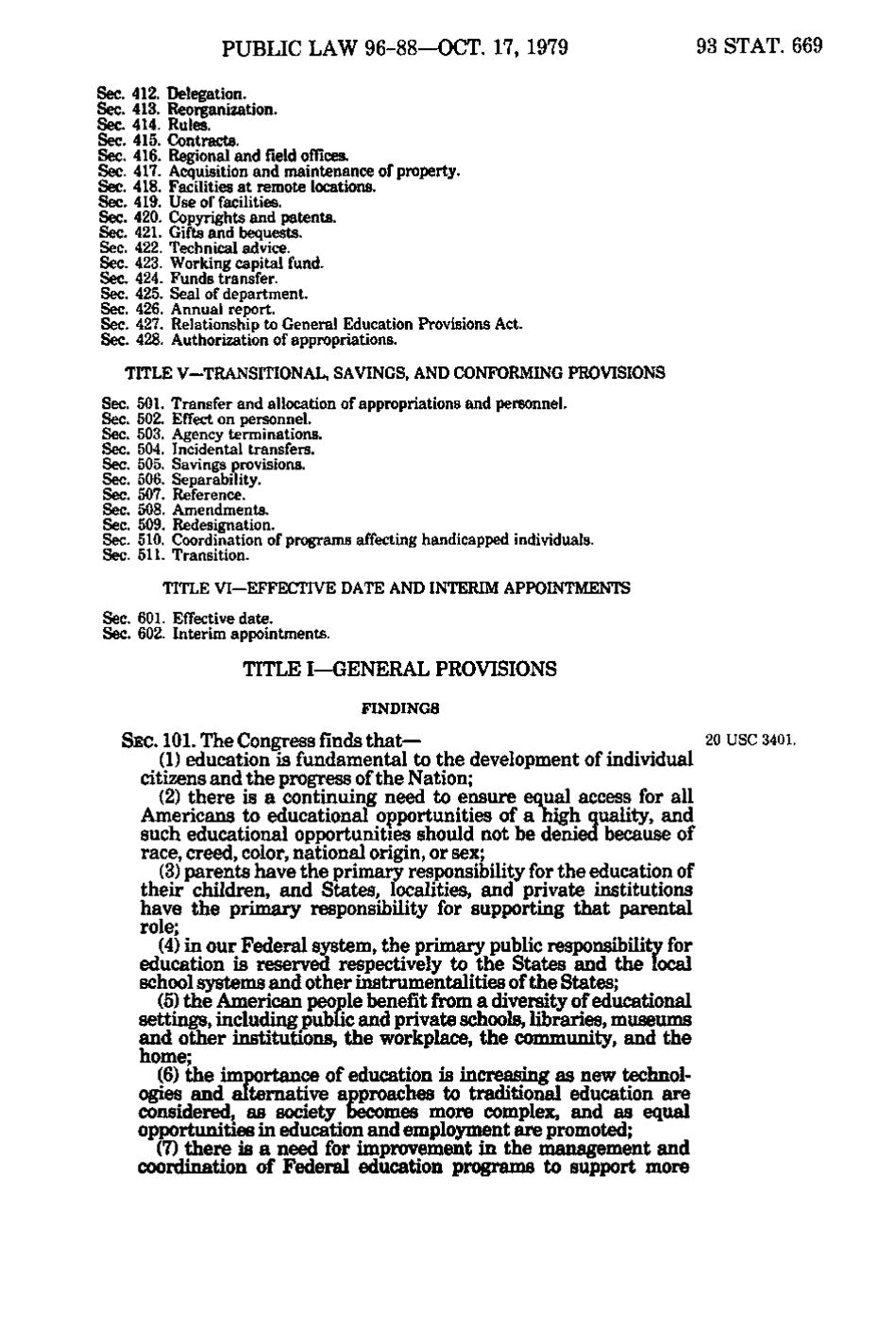PUBLIC LAW 96-88—OCT. 17, 1979
93 STAT. 669
Sec. 412. Delegation. Sec. 413. Reorganization. Sec. 414. Rules. Sec. 415. Contracts. Sec. 416. Regional and field offices. Sec. 417. Acquisition and maintenance of property. Sec. 418. Facilities at remote locations. Sec. 419. Use of facilities. Sec. 420. Copyrights and patents. Sec. 421. Gifts and bequests. Sec. 422. Technical advice. Sec. 423. Working capital fund. Sec. 424. Funds transfer. Sec. 425. Seal of department. Sec. 426. Annual report. Sec. 427. Relationship to General Education Provisions Act. Sec. 428. Authorization of appropriations. TITLE V—TRANSITIONAL, SAVINGS, AND CONFORMING PROVISIONS Sec. Sec. Sec. Sec. Sec. Sec. Sec. Sec. Sec. Sec. Sec.
501. Transfer and allocation of appropriations and personnel. 502. Effect on personnel. 503. Agency terminations. 504. Incidental transfers. 505. Savings provisions. 506. Separability. 507. Reference. 508. Amendments. 509. Redesignation. 510. Coordination of programs affecting handicapped individuals. 511. Transition. TITLE VI-EFFECTIVE DATE AND INTERIM APPOINTMENTS
Sec. 601. Effective date. Sec. 602. Interim appointments.
TITLE I—GENERAL PROVISIONS FINDINGS
SEC. 101. The Congress finds that— 20 USC 340i. (1) education is fundamental to the development of individual citizens and the progress of the Nation; (2) there is a continuing need to ensure equal access for all Americans to educational opportunities of a high quality, and such educational opportunities should not be denied because of race, creed, color, national origin, or sex; (3) parents have the primary responsibility for the education of their children, and States, localities, and private institutions have the primary responsibility for supporting that parental role; (4) in our Federal system, the primary public responsibility for education is reserved respectively to the States and the local school systems and other instrumentalities of the States; (5) the Americem people benefit from a diversity of educational settings, including public and private schools, libraries, museums and other institutions, the workplace, the community, and the home; (6) the importance of education is increasing as new technologies and alternative approaches to traditional education are considered, as society becomes more complex, and as equal opportunities in education and employment are promoted; (7) there is a need for improvement in the management and coordination of Federal education programs to support more
�
